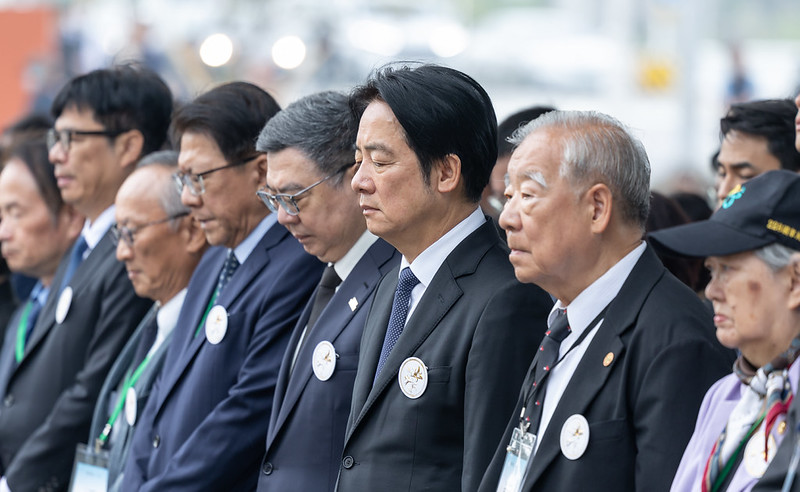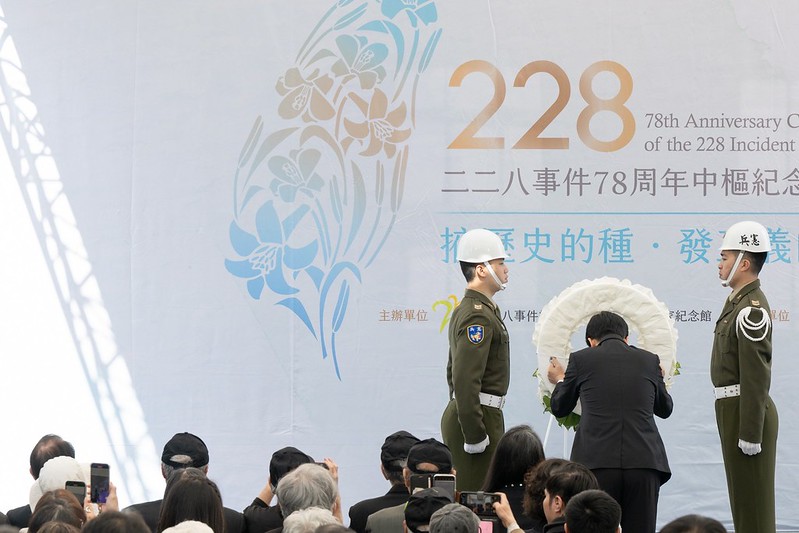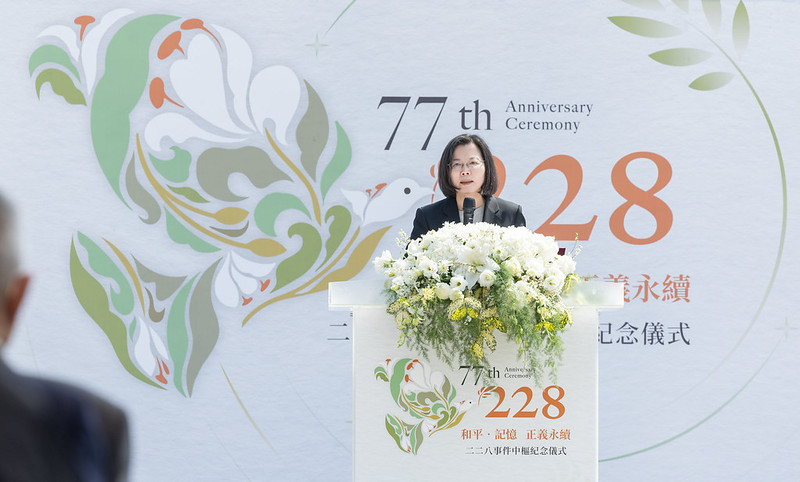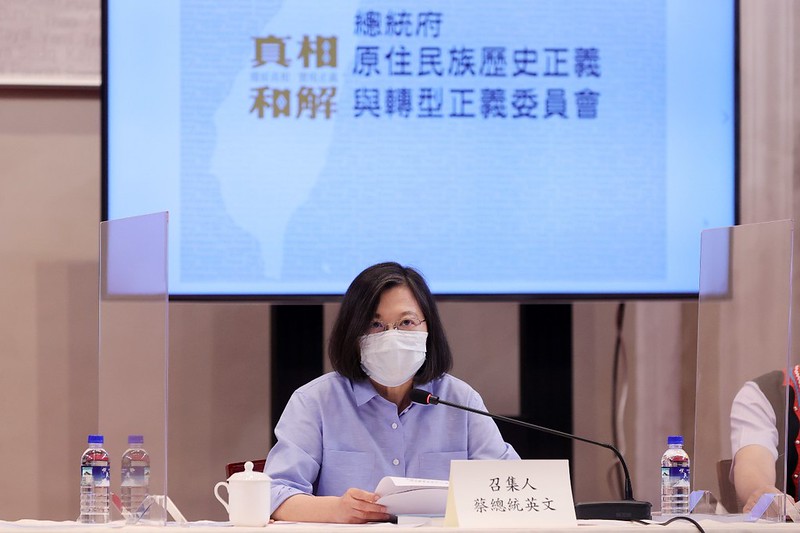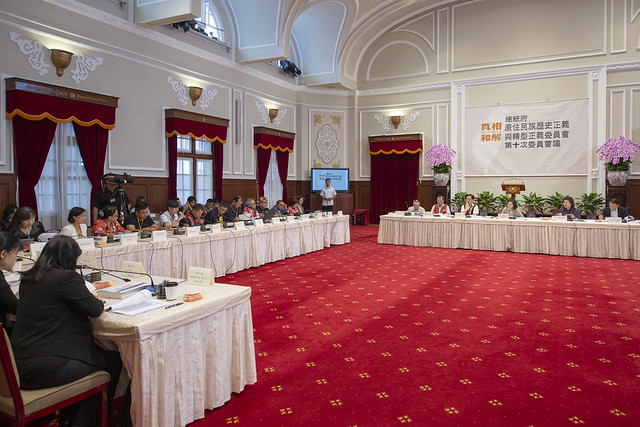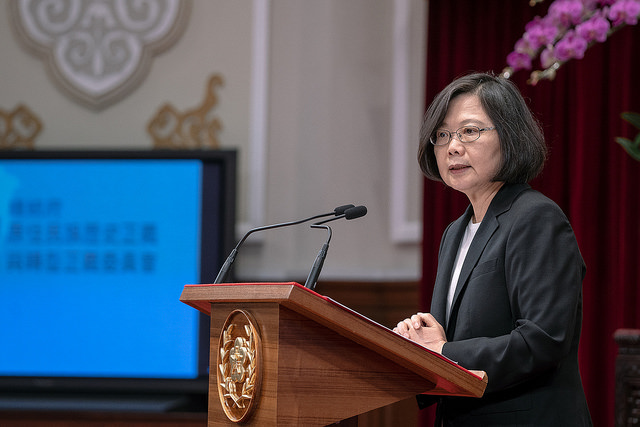News & activities
 News releases
News releases
Committee Convener President Tsai Ing-wen presided over the seventh meeting of the Presidential Office Indigenous Historical Justice and Transitional Justice Committee on September 28, which ran for about two hours.
The meeting coincided with Teachers Day, and the Committee's thematic subcommittees on culture and languages were scheduled to deliver progress reports for the current phase of their work. The reports were followed by discussion of a proposal by Committee members for promoting indigenous languages and cultures.
Agilasay Pakawyan (林志興), convener of the subcommittee on culture, first delivered a briefing on the history of the suffering of indigenous peoples during the national compulsory assimilation education program. He was followed by Masegeseg Z. Gadu (童春發), convener of the subcommittee on languages, who delivered a presentation on the history of unwarranted restrictions on the use of indigenous languages under the government's sinification policy. Convener Masegeseg Z. Gadu underlined the legitimacy of indigenous languages by delivering his entire report in the Paiwan language, setting a new precedent for a formal meeting at the Presidential Office.
After a lively exchange of views among Committee members, the president issued a three-point response:
First, the president lauded the subcommittee conveners and their teams for their efforts over the past year, making a preliminary outline of the historical truth from the indigenous peoples' point of view.
Second, the president agreed that past education measures based on a single, uniform culture and language did harm indigenous peoples. She therefore encouraged all of her government colleagues to rectify these mistakes, allow indigenous languages and cultures to develop again, and implement historical justice. The president made a point to say that removing any passages in existing textbooks that contain prejudiced attitudes should be a priority, and that the government should implement a comprehensive plan for the training of indigenous-language teachers and cultural talent.
Third, the president directed the Ministry of Education and other relevant ministries and agencies to continue to help the Committee's thematic subcommittees examine and research the relevant government archival records, and preserve historical evidence. She also directed the Ministry of Culture to properly record the actual historical memories of indigenous elders.
During the meeting, Committee members made a total of 12 proposals and three extemporaneous motions. One proposal discussed at the meeting came from Tsou tribe representative voe-uyongana (吳新光), who requested that the competent authority for indigenous peoples affairs take advantage of this opportunity to promote indigenous languages and cultures more vigorously.
Council of Indigenous Peoples Minister Icyang Parod (夷將‧拔路兒) responded to that proposal, saying that since the Indigenous Languages Development Act was promulgated, efforts to professionalize indigenous-language teachers are underway. Article 25 of that Act provides: "Three years from the implementation of this act, indigenous peoples who participate in the Special Civil Service Examinations for Indigenous Peoples and the Examination of Government Sponsorship for Overseas Study shall obtain certification in indigenous language proficiency." The Council of Indigenous Peoples and relevant authorities are now discussing how to implement that provision, which is set to take effect the year after next.
After lively discussions with Committee members, President Tsai issued her directives reflecting the importance of issues raised by Committee members related to indigenous knowledge systems, training of teachers, and curriculum development. She therefore requested that Committee Deputy Convener Pasuya Poiconu (浦忠成) hold ad hoc meetings before the next meeting of the Committee, and invite Committee members and representatives of relevant government ministries and agencies to hold in-depth discussions.
